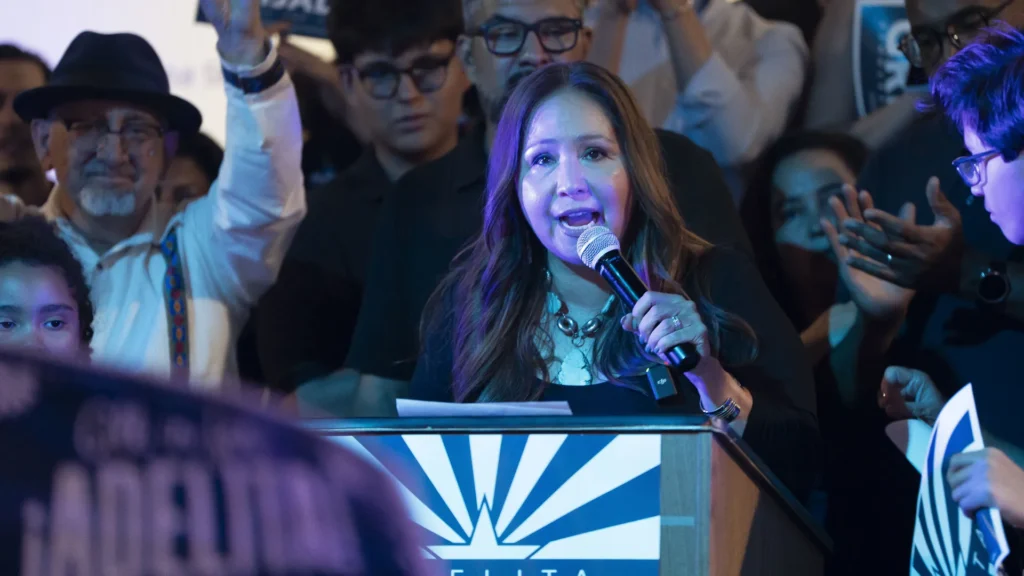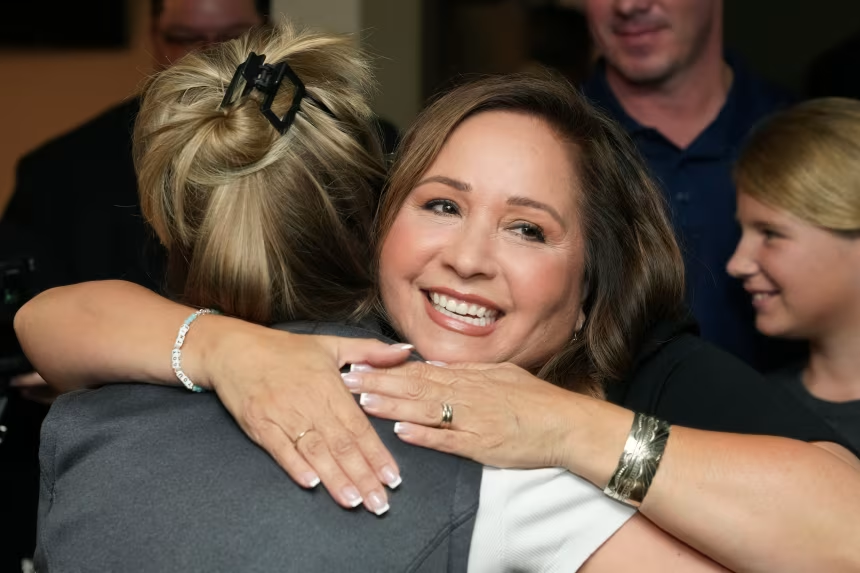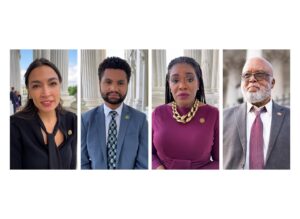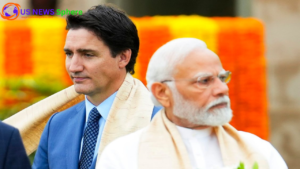Arizona special election Epstein files have suddenly become central to a high-stakes fight in Washington. The outcome of a local congressional race in Arizona may determine whether Congress forces the public release of investigative files tied to Jeffrey Epstein. With national attention focusing on accountability, justice, and transparency, the result of this race could shift leverage in one of the most fraught political battles of 2025.
The Stakes: From Local to National
At first glance, the special election in Arizona’s 7th Congressional District is a standard midterm-style contest triggered by the death of longtime Representative Raúl Grijalva in March 2025. But in 2025, every House seat carries added weight, and this one — solidly Democratic in a deep-blue district — is viewed as a “safe” hold for Democrats.

However, the reason this Arizona race has drawn national attention is that a narrowly divided House is gridlocked over whether to force the release of Jeffrey Epstein–related files. A procedural tool known as a discharge petition requires 218 members of the House to sign on; that would compel leadership to bring a bill to the floor, forcing the Department of Justice to release unclassified Epstein documents.
As of mid-September, the petition stood just shy of that threshold. Democrats have broadly pledged support, and only a handful of Republicans have signed on. But if the new Arizona Member of Congress pledges to sign, that could tip the balance.
Thus, while the race may look routine, the outcome could force an unprecedented disclosure battle — or a crisis of credibility.
Who’s Running, What They Say
On the Democratic side, Adelita Grijalva — daughter of the late Raúl Grijalva — easily won her party’s nomination and was widely expected to win in a district that has historically leaned Democratic. Her candidacy is often portrayed as a direct continuation of her father’s legacy.
Her Republican opponent, Daniel Butierez, is a small-business owner and political newcomer who ran on issues ranging from border security to economic growth. According to campaign statements and press coverage, both candidates committed to signing the Epstein discharge petition if elected — a statement that turned this normally predictable race into a national litmus test.
When votes were tallied, Adelita Grijalva won by a decisive margin — approximately 68–70% to Butierez’s roughly 27–30%. That margin matches expectations for a safe Democratic district, yet its implications now ripple far beyond the Arizona border.
With her victory, she is expected to become the 218th signature on the petition, thereby triggering procedural mechanics to bring the Epstein-related legislation to the floor. Some Republicans who had previously hesitated may now feel empowered to join the push, while House leadership braces for a potentially explosive showdown.
The Discharge Petition Battle
To understand why this petition matters, one must appreciate how rare and difficult it is to use a discharge petition successfully. Under House rules, a discharge petition is a method to circumvent the Speaker and force a bill onto the floor, provided enough members (218) sign it. But historically, those petitions often fail or get stalled.
The Epstein petition is sponsored by Republican Rep. Thomas Massie and Democratic Rep. Ro Khanna. The idea: force leadership’s hand and compel a full House vote, rather than letting Speaker Johnson or others block or delay it.
In recent weeks, the petition’s momentum has been tested. Some early Republican backers withdrew support, citing leadership pressure or believing that the House Oversight Committee’s work made a discharge unnecessary. House Speaker Mike Johnson has expressed reluctance, arguing that the Oversight Committee’s investigation can produce more controlled and thoughtful releases and that the petition is redundant.
Nonetheless, bipartisan pressure has grown. Senate Republicans and Trump-aligned Republicans may resist, but the optics of fighting a disclosure vote risk political blowback. If the petition succeeds, the House would be forced to decide — bringing names and positions into the public record.
Following the House release of some Epstein documents — over 33,000 pages via subpoena by Oversight Committee Chair James Comer — some argued the petition was redundant. But critics note that the bulk of those pages were already publicly available and that few disclosed truly new or revelatory materials. The petition’s supporters contend that a floor vote would require uncompromising transparency, not filtered redactions.
What Happens Next (and Why It Matters)
With Adelita Grijalva’s win, the House stands on a knife’s edge. Republicans now hold a very slim majority (219 seats to Democrats’ 214 after previous changes). In such a delicate balance, losing even one or two votes on a party-line issue like this could derail legislation.
Once the petition hits 218 names, procedural rules require waiting periods before a floor vote can occur — and leadership could delay or obstruct the process. But assuming a successful discharge, the House would vote in mid-October. If the House passes, it would then face the Senate and a potential presidential veto — both major hurdles.
Beyond procedural drama, the substance matters deeply. Epstein’s case has long been shrouded in secrecy, speculation, and frustration by survivors who argue key documents remain hidden. Supporters of disclosure argue that comprehensive public files could reveal networks, names, and accountability long concealed. Opponents warn of exposing victim identities, sensitive evidence, or national security interests.
Politically, this vote will test House leadership’s grip, influence public perception of accountability, and shape narratives around power, transparency, and who gets protected by secrecy.
Challenges, Risks, and Potential Pitfalls
Even with momentum, the discharge petition route is fraught. Leadership can stall, rules can slow, and votes can shift. Some Republicans may fear retaliation or political risk. Leadership may argue that the Oversight Committee should remain the primary vehicle for release, offering redactions or negotiations.
Moreover, some Republicans who initially supported the petition have withdrawn, citing pressure or shifting priorities. And even if the House passes a disclosure bill, the Senate’s calendar, committee rules, and filibuster-style delays may block progress. A presidential veto is also likely if the bill reaches the White House.
From the survivor and public perspective, too much filtering or redaction could render the release superficial. Critics warn that token disclosures may mask deeper truths. The Washington Post
Why This Moment May Be a Turning Point
The Arizona election transformed a local contest into a national inflection. What was once a firmly Democratic seat is now the path to forcing transparency on a scandal that has fascinated the public for years.
This moment encapsulates tensions in modern American politics: procedural warfare, partisan control, demands for accountability, and the struggle between oversight and executive privilege. The outcome will reverberate in public trust, political narratives, and possibly the extent of what remains hidden in Epstein’s files.
If the petition succeeds and forces a full House vote, every lawmaker’s position will be on record. That alone changes the dynamic. For survivors and activists, it may represent progress — however incremental — in exposing systems long shielded behind bureaucracy and secrecy.
Conclusion
Arizona special election Epstein files are no longer just a keyword combination — they represent a defining moment in U.S. politics. A reliably blue district’s special election now holds the key to whether Congress can force the release of the Epstein investigation documents, breaking months of stalemate. Adelita Grijalva’s victory doesn’t just continue a legacy — it may trigger a confrontation over transparency, accountability, and power.
As Congress returns, eyes will be fixed on whether leadership yields to pressure, whether the petition crosses 218 signatures, and whether the House agrees, in a public vote, to open the doors to evidence long held behind closed doors.
Subscribe to trusted news sites like USnewsSphere.com for continuous updates.





